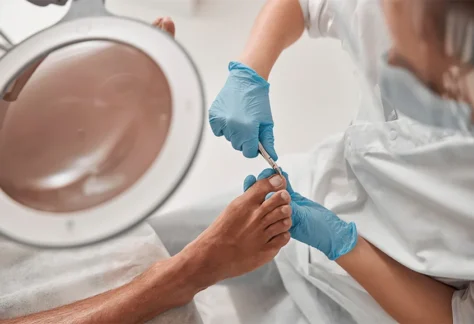In This Article:
- Most energy drinks are made up of water, sugar, caffeine, vitamins, minerals and non-nutritive stimulants including guarana, taurine and ginseng. The stimulants are not harmful in moderation but can be dangerous when consumed frequently in large doses.
- Energy drinks may cause headaches, stomach aches, diarrhea, dizziness, trouble sleeping and dehydration. Repeated use can lead to long term health effects, including heart rhythm disturbances, addiction and withdrawal, increased heart rate or blood pressure and anxiety.
- Energy drinks are safe in moderation, but it’s better to look for more natural methods — like diet, sleep and a steady exercise regimen — for healthier, more reliable energy.
Are Energy Drinks Safe?
From grocery stores to gas stations, energy drinks may be one of the most marketed and widely available products in the United States. But how truthful are their boasts of “vitalized body and mind”, “increased energy” and “enhanced focus”? And is there a downside?
Energy drinks have been around for decades. However, a growing body of research has shown that energy drinks can have serious negative health consequences, especially for children and young adults. According to one study from the American Journal of Preventive Medicine, energy drink consumption and caffeine intake in the United States has increased over the past decade, most substantially among adolescents, young adults, and middle-aged adults.
What are Energy Drinks Made Of?
Most energy drinks are made up of similar ingredients: water, sugar, caffeine, certain vitamins, minerals and non-nutritive stimulants including guarana, taurine and ginseng. For reference, coffee has about 100 mg of caffeine per cup. Energy drinks can have anywhere from 100 to 250 mg of caffeine per serving. In addition to lots of caffeine, here are the most commonly used stimulants used in energy drinks:
- Guarana
- Taurine
- Ginseng
- Bitter Orange
- L-carnitine l-tartrate (LCLT)
- Yerba mate
- Gingko
- St. John’s Wort
- 5-hydroxytryptophan
- yohimbine
Most of these stimulants are herbs used to increase focus, boost energy and in some cases enhance sexual desire. While not necessarily harmful by themselves, when repeatedly consumed in large doses or in tandem with caffeine, they can cause serious damage to your health.
Unfortunately, due to most energy drinks being classified as “dietary supplements”, many companies have sidestepped FDA regulations and managed to avoid listing their exact ingredient details. Also, while the FDA limits the amount of caffeine that may be in a can of soda (to 0.2%) there are no such limits in place for energy drinks.
“The increasing use of energy drinks, especially among young adults, is cause for concern and warrants continued study and surveillance,” says Dr. Sara N. Bleich from the Department of Health Policy and Management, Harvard. “Although the beverages are marketed to reduce fatigue and improve physical and mental performance, frequent consumption of these highly caffeinated and sugary beverages has been linked to negative health consequences.”
Health Problems from Energy Drinks
Energy drinks have long come under fire for being a health hazard, in some cases even being cited for the cause of death. One 2015 study published by the Journal of the American Medical Association (JAMA), found that consumption of just one highly caffeinated energy drink could cause an unsafe increase in blood pressure and an increase in stress hormone levels just 30 minutes after consuming it. Energy drinks are also associated with several negative health consequences. For example, in the short term:
- Headaches
- Stomach aches, and diarrhea
- Chest Pain
- Dizziness
- Trouble sleeping
- Dehydration
- Increased risk-taking behavior
Repeated use of energy drinks can also lead to long term health consequences, including:
- Heart rhythm disturbances
- Addiction and withdrawal
- Increased heart-rate/blood pressure
- Anxiety
How Safe Are Energy Drinks?
The growing medical literature is shedding light on health problems associated with these products, although they have not been in existence long enough to build a solid, evidence-based appreciation of potential long-term effects. Perhaps the greatest concern about energy drinks is the amount of caffeine they contain. The Food and Drug Administration recommends only consuming up to 400mg of caffeine per day. This is the upper limit before serious negative health effects kick in.
There were more than 20,000 emergency room visits that involved the consumption of energy drinks from 2007 to 2011. Heavy consumption has also been linked to kidney issues, and even reduce blood supply to the brain. The American Academy of Family Physicians has issued a policy statement that opposes the sale and marketing of stimulant drinks and related products to individuals under the age of 18 in the United States of America. This was in response to the multiple ER visits, hospitalizations and even deaths of people who have consumed large quantities of energy drinks.
Additional concerns relate to the effects of other additives and their potential interactions with medications you doctor may give you. Bitter orange can cause cardiovascular adverse effects, ginseng can exacerbate bleeding problems and lower blood sugar levels, and guarana can affect sleeping and anxiety disorders (4). As for interactions, 5-hydroxytryptophan should not be combined with certain antidepressants, yohimbine can interact with blood pressure medications, and ginseng can alter the effectiveness of a blood thinner called Warfarin (5).
The bottom line for energy drinks is this: you should look outside of a bottle for energy. There are better ways to “vitalize body and mind” than a potentially harmful beverage with little benefits and plenty of unregulated ingredients. These include eating a Mediterranean-like diet (vegetables, fruits, nuts, whole grains, and limited red meat), avoid excessive consumption of beverage calories (sugary drinks and alcohol), practicing good sleep hygiene (maintaining consistent sleep patterns, avoiding screen time 30min-1hr before going to bed), and regular exercise (2-3 hours over the course of a week of moderate aerobic activity).
Call 1 (833) VLLYWSE to book an appointment at a Valleywise Comprehensive Health Center near you to learn more about how to stay healthy and energized.
Sources
1. https://www.sciencedaily.com/releases/2019/04/190429125416.htm
2. http://jama.jamanetwork.com/article.aspx?articleID=2469194
3. https://www.aafp.org/about/policies/all/stimulant-drinksandproducts.html
4. https://www.ncbi.nlm.nih.gov/pubmed/18595815







